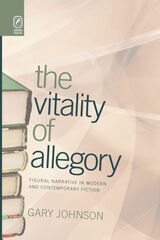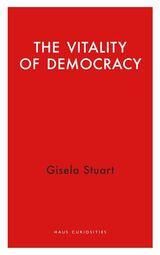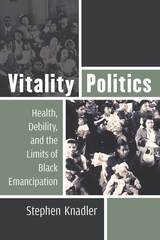4 books about Vitality

Vitality And Dynamism
Interstitial Dialogues of Language, Politics, and Religion in Morocco's Literary Tradition
Kirstin Bratt
Amsterdam University Press
Anti-colonial literature is not necessarily ‘combat literature’ as Fanon and Déjeux have both suggested in their own writings. While it is often combative, there is also anti-colonial literature that emphasizes the human and the humane rather than the oppositional and contentious; it cannot be fair to label all anti-colonial literature as combative, even if one were to expand the definition of “combat” to include peaceful struggles against oppression or dehumanization.
This book suggests that the relationship between the West and the rest of the world has been imagined as a relationship of Self (the West) to Other (the rest of the world), ordered and bordered geographically by the whims of Europeans and creating a Center-Periphery paradigm. These invented boundaries of humanity serve to separate geographical sites, but more, they serve to enclose the Empire and exoticize other cultures. Boundaries are often spatial, but more often, they are related to relationships and colonialization.
[more]

The Vitality of Allegory
Figural Narrative in Modern and Contemporary Fiction
Gary Johnson
The Ohio State University Press, 2012
In The Vitality of Allegory Gary Johnson argues that the rumors of allegory’s death have been greatly exaggerated. Surveying the broad landscape of modern and contemporary narrative fiction, including works from Europe, Africa, and North America, Johnson demonstrates that, although wholly allegorical narratives have become relatively rare, allegory itself remains a vibrant presence in the ongoing life of the novel, a presence that can manifest itself in a variety of ways.
Working from the premise that conventional conceptions of allegory have been inadequate, Johnson takes a rhetorical approach, defining allegory as the transformation of some phenomenon into a figural narrative for some larger purpose. This reconception allows us to recognize that allegory can govern a whole narrative—and can do so strongly or weakly—or be an embedded part or a thematic subject of a narrative and that it can even be used ironically. By developing these theoretical points through careful and insightful analysis of works such as Jackson’s “The Lottery,” Orwell’s Animal Farm, Kafka’s The Metamorphosis and The Trial, Achebe’s Things Fall Apart, Roth’s American Pastoral, Mann’s Death in Venice, Coetzee’s Elizabeth Costello, and several works by John Barth, Johnson himself transforms our understanding of allegory and of the history of the modern and contemporary novel.
[more]

The Vitality of Democracy
Gisela Stuart
Haus Publishing, 2022
A reflection on the current state of and challenges to British democracy.
In The Vitality of Democracy, British-German politician Gisela Stuart argues for the urgency of expanded participation in the democratic process and considers the risks democracy currently faces. Although democracy is rife with difficult choices, she shows that if the people do not appreciate what makes this system work, they risk losing it. While no individual holds the answers, democracy allows for power to change hands, giving opportunities for different sides to have a chance at improving government for all.
Stuart reflects on challenges to British democracy since the mid-2010s. With the United Kingdom exiting the European Union and facing an overwhelming pandemic, restrictions to civil liberties were imposed that may have been unimaginable in the past. It is time to pause and reflect on the serious challenges currently posed to democracy and to the ability of the people to take part.
In The Vitality of Democracy, British-German politician Gisela Stuart argues for the urgency of expanded participation in the democratic process and considers the risks democracy currently faces. Although democracy is rife with difficult choices, she shows that if the people do not appreciate what makes this system work, they risk losing it. While no individual holds the answers, democracy allows for power to change hands, giving opportunities for different sides to have a chance at improving government for all.
Stuart reflects on challenges to British democracy since the mid-2010s. With the United Kingdom exiting the European Union and facing an overwhelming pandemic, restrictions to civil liberties were imposed that may have been unimaginable in the past. It is time to pause and reflect on the serious challenges currently posed to democracy and to the ability of the people to take part.
[more]

Vitality Politics
Health, Debility, and the Limits of Black Emancipation
Stephen Knadler
University of Michigan Press, 2019
Vitality Politics focuses on a slow racial violence against African Americans through everyday, accumulative, contagious, and toxic attritions on health. The book engages with recent critical disability studies scholarship to recognize that debility, or the targeted maiming and distressing of Black populations, is a largely unacknowledged strategy of the U.S. liberal multicultural capitalist state. This politicization of biological health serves as an instrument for insisting on a racial state of exception in which African Americans’ own unhealthy habits and disease susceptibility justifies their legitimate suspension from full rights to social justice, economic opportunity, and political freedom and equality. The book brings together disability studies, Black Studies, and African American literary history as it highlights the urgent need and gives weight to a biopolitics of debilitation and medicalization to better understand how Black lives are made not to matter in our supposedly race-neutral multicultural democracy.
[more]
READERS
Browse our collection.
PUBLISHERS
See BiblioVault's publisher services.
STUDENT SERVICES
Files for college accessibility offices.
UChicago Accessibility Resources
home | accessibility | search | about | contact us
BiblioVault ® 2001 - 2024
The University of Chicago Press









